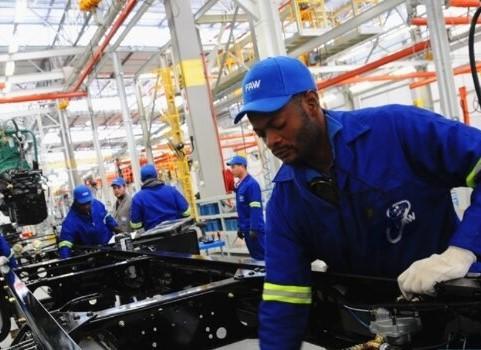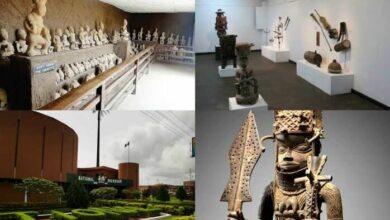
10 Problems Facing Manufacturing Industries In Nigeria
Problems Facing Manufacturing Industries In Nigeria – The manufacturing industry is essential to Nigeria’s economic growth and development. The industry helps in increasing import potential, providing jobs, stimulating technological and scientific growth as well stimulating the growth of talent needed to innovate and sustain the economy.Information Guide Nigeria
The industry is essential and is expected to be strong in any country seeking growth. In Nigeria, the manufacturing industry is faced with a lot of challenges that deter it from producing its expected outcome in the economy. This article explores the problems in the industry and suggests some solutions.
👉 Relocate to Canada Today!
Live, Study and Work in Canada. No Payment is Required! Hurry Now click here to Apply >> Immigrate to CanadaRead Also: 10 PROBLEMS FACING NOMADIC EDUCATION IN NIGERIA
What To Know About The Manufacturing Industry In Nigeria
The manufacturing industry in Nigeria is an important sector of the economy, contributing to employment, exports, and economic growth. It encompasses various sub-sectors such as food and beverage processing, textile and garment manufacturing, chemicals and pharmaceuticals, cement and building materials, and automotive assembly.Problems Facing Manufacturing Industries
However, the industry has faced several challenges, which when coupled with competition from imported goods and counterfeits have also affected the industry’s performance. Despite these challenges, the Nigerian government has made efforts to support the industry through various policies and initiatives to promote local production and create jobs.
10 Problems Facing Manufacturing Industries In Nigeria
- Electricity and Power Supply Challenges: One of the major challenges facing the manufacturing industry in Nigeria is the lack of reliable electricity and power supply. This affects productivity and efficiency, as manufacturers often have to rely on expensive and inefficient alternative power sources such as generators. This significantly increases operational costs and makes it difficult for Nigerian manufacturers to compete with their counterparts in other countries.10 Best University In Nigeria For Software Engineering
- Access to Capital and Funding: Another problem facing the manufacturing industry in Nigeria is access to capital and funding. Many manufacturing companies struggle to secure the necessary funding to invest in new equipment, expand operations, and develop new products. This is due to a lack of credit facilities and the high cost of borrowing, which makes it difficult for manufacturers to access the fincosting they need to grow and develop their businesses.
Read Also: 7 Problems Facing Commercial Bank In Nigeria
3. Infrastructure and Logistics Challenges: Manufacturing in Nigeria is also hindered by a lack of infrastructure, particularly in terms of transportation and logistics. Poor road networks and inadequate port facilities make it difficult for manufacturers to transport raw materials and finished products, leading to increased costs and supply chain disruptions.
4. Competition from Imported Goods: Nigerian manufacturers also face competition from imported goods, which are often cheaper and of better quality than locally produced products. This makes it difficult for local manufacturers to compete and stay in business and contributes to the decline of the manufacturing sector in the country.NYSC Portal
5. Corruption and Bureaucracy: Corruption and bureaucratic inefficiencies are other major challenges facing the manufacturing industry in Nigeria. Manufacturers often face obstacles in the form of bureaucratic red tape and corruption, which makes it difficult to obtain licenses, permits, and approvals necessary to operate their businesses. This leads to increased costs and delays in production, which can negatively impact the competitiveness of the industry.
6. Lack of Skilled Labor: The manufacturing industry in Nigeria also faces a shortage of skilled labour, as there is a limited pool of workers with the necessary skills and expertise. This affects the productivity and efficiency of the industry, as manufacturers are often forced to rely on unskilled or semi-skilled workers, leading to sub-optimal output and low-quality products.
👉 Relocate to Canada Today!
Live, Study and Work in Canada. No Payment is Required! Hurry Now click here to Apply >> Immigrate to Canada7. High Cost of Raw Materials: The high cost of raw materials is another major challenge facing the manufacturing industry in Nigeria. This is due to a lack of local suppliers and the high cost of imported materials, which makes it difficult for manufacturers to produce goods at competitive prices.JAMB Portal
8. Poor Quality Control: The quality of goods produced by the manufacturing industry in Nigeria is often poor, due to a lack of quality control measures and inadequate inspection processes. This affects the competitiveness of Nigerian-made products in the global market and reduces consumer confidence in the country’s manufacturing sector.
9. Regulatory Challenges: The manufacturing industry in Nigeria also faces regulatory challenges, as there are often conflicting regulations and standards from different government agencies, which can be confusing and difficult to navigate. This creates a challenging environment for manufacturers, who must navigate a complex web of regulations to operate their businesses.200 romantic love message for her
10. Lack of Diversification: Finally, the manufacturing industry in Nigeria is not well diversified, as it is dominated by a small number of industries and sectors. This makes the industry vulnerable to fluctuations in demand and economic downturns and limits the potential for growth and development. A more diversified manufacturing sector would be better able to withstand economic shocks and provide a more stable foundation for the overall economy.
Read Also: 7 Problems Facing By Livestock Industry In Nigeria
Possible Solutions to the Problems Facing Manufacturing Industries In Nigeria
- Improving Electricity and Power Supply: The government could invest in the expansion and upgrading of the national power grid, as well as in alternative energy sources such as solar and wind power, to improve the reliability of electricity and power supply. This would reduce the reliance on expensive and inefficient backup power sources, making it easier for manufacturers to operate at optimal levels.JAMB Result
- Encouraging Access to Capital and Funding: The government could also work with banks and financial institutions to provide low-interest loans and other financing options to manufacturers. Additionally, tax incentives and grants could be offered to encourage investment in the manufacturing sector.
- Improving Infrastructure and Logistics: The government could invest in the improvement of road networks, port facilities, and other key infrastructure to reduce costs and improve the efficiency of transportation and logistics. This would make it easier for manufacturers to move raw materials and finished goods, reducing supply chain disruptions and increasing competitiveness.50 Best Universities In Nigeria To Study Petroleum Engineering
- Encouraging Local Production: The government could also take steps to reduce the influx of imported goods by implementing tariffs, quotas, and other trade barriers. This would increase demand for locally produced goods and support the growth of the manufacturing sector.
- Tackling Corruption and Bureaucracy: The government could work to reduce corruption and bureaucratic inefficiencies by improving transparency, accountability, and the rule of law. This would create a more favourable business environment for manufacturers, reducing the time and cost associated with obtaining licenses and permits.
Read Also: 7 Problems Facing By Guidance And Counselling In Nigeria
6. Developing Skilled Labor: The government could invest in education and training programs to develop a pool of skilled workers for the manufacturing industry. This would help to improve the productivity and efficiency of the sector, as well as support the growth of the country’s human capital.
7. Supporting Local Suppliers: The government could also support local suppliers by providing tax incentives and other forms of support. This would reduce the cost of raw materials, making it easier for manufacturers to produce goods at competitive prices.
8. Improving Quality Control: The government could implement quality control measures and inspection processes to ensure the production of high-quality goods. This would improve the competitiveness of Nigerian-made products in the global market, and increase consumer confidence in the country’s manufacturing sector.105 good morning messages
9. Streamlining Regulatory Processes: The government could streamline regulatory processes by creating a single, unified set of regulations and standards for the manufacturing sector. This would reduce the complexity and confusion associated with navigating different regulations and standards, making it easier for manufacturers to operate their businesses.
10. Diversifying the Manufacturing Sector: Finally, the government could encourage the diversification of the manufacturing sector by investing in new industries and technologies. This would create a more stable foundation for the overall economy, reducing the vulnerability to fluctuations in demand and economic downturns.
Read Also: 6 Problems Facing Early Childhood Education In Nigeria
Conclusion
To create sustainable growth in an economy, the manufacturing industry must be strengthened to not only meet domestic demands but also supply International demands. By implementing the suggested solutions, the Nigerian government can ensure the industry is provided with the needed environment to flourish.
Check JAMB RESULT
Check and Confirm: How much is Dollar to Naira








